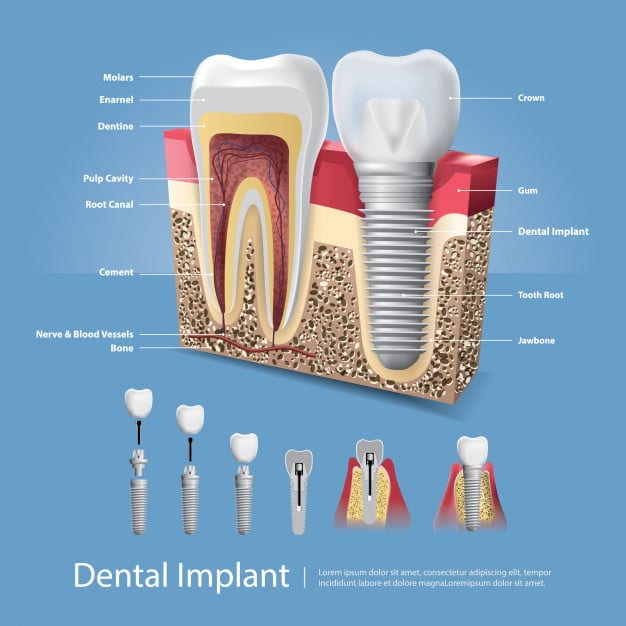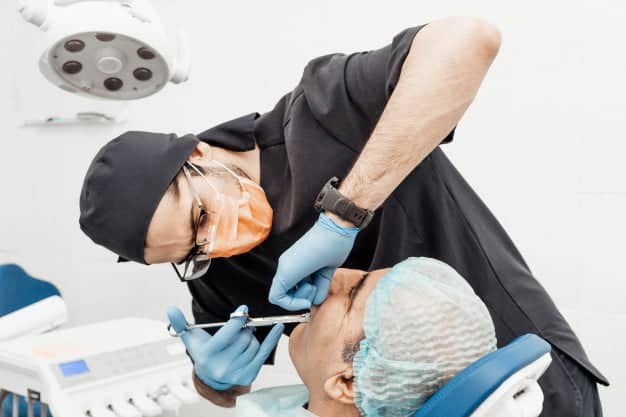The oral cavity is one of the most delicate areas of the body. Not only for its aesthetic value, but for the health problems that we may be victims of due to poor hygiene or a bad procedure.
Dental implants are elements that are located under a surgical procedure in the maxillary bones, under the gums. Once installed there, they fuse with the mandibular bone, providing stable support for artificial teeth that will replace missing teeth.
It should be noted that not everyone can get these dental implants. Therefore, it’s necessary to go to a specialist to assess the state of your maxillary bones because there needs to be enough mass for the implant to be fixed. If not, it will be necessary to assess other options.
To receive dental implants, it’s necessary to have a totally healthy oral cavity that is adequate to support the implant. Likewise, the patient must assume the reins of healthy care to keep these structures in good condition, and make them last for a long time.

Types of dental implants
Two types of dental implants are considered safe, according to the American Dental Association:
-
Endosteal implant
These are placed during surgery on the maxillary bones, and once the tissue has healed, a second surgical intervention is required to connect a post on the original implant. To finish with a third operation that will place one or more artificial teeth on the post. The teeth can be individual or they can be grouped in a fixed prosthesis.
-
Subperiosteal implant
It’s a type of implant that places a dental frame on the maxillary bones. It can be fixed to the maxillary bone when the tissue healing has finished. As with the other type of implant, artificial teeth are placed on those posts.
Dental implant risks
Although the dental implant is usually a simple surgery, some complications could be generated in certain cases.
- Generate rejection. In this situation, the gum can reject the material that makes up the structure, which results in the dental implant being able to move and even fall, but without giving complications.
- Any infection. Another important point is acquiring an infection that can be introduced during surgery. This is why all the materials used by the specialist must be disposable or properly sterilized.
- Injury to a nerve. In this case, pain can occur, that is, itching and even numbness of the teeth, lips, gums and part of the cheeks. This can appear when an improper dental implant is used, and is usually the mistake of the dentist.

The result of successful dental implants often depends on where the missing teeth are located; however the rate of successful procedures goes beyond 90 percent of cases. This accompanied by excellent oral hygiene to avoid risk situations linked to the structures placed.
